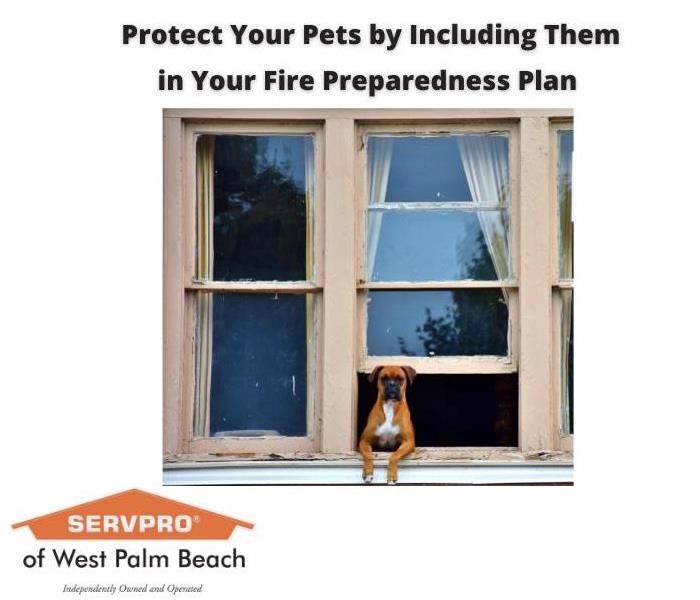Creating a Fire Preparedness Plan For Your Pets
8/19/2021 (Permalink)
Fires are the one of the quickest disasters to strike and spread. Preparation for these emergencies is crucial. We often think about how we will protect the residence and people inside but typically don’t create thorough emergency plans for our pets. Here are some guidelines to consider when planning how to take care of animals during and after a fire emergency.
Create a plan for someone to assist in the event you aren’t home for an emergency
Neighbors can be great resources especially during emergencies. It is a good idea to identify a neighbor you trust who may be able to help access your pets in case you aren’t home during an emergency. Make sure your home security and safety systems are all operational including smoke detectors and alarms. If you live in a neighborhood or apartment with an association or management team, discuss emergency policy regarding entering the residence during an emergency. Discuss any options for evacuating animals. Consider identification for your pets, including microchips or detailed tags, in case they run loose during an evacuation.
Locate safe places for pets to stay during the cleanup and restoration
Locate a safe place for your pets to stay if you are temporarily displaced and need to stay somewhere that doesn’t allow for or have room for your animals. It is important to consistently keep track of their vaccinations in the case you to suddenly board them. Call ahead and screen locations to see if they have an emergency veterinarian on staff to help with monitoring their health and behavior. Add a few locations to your emergency contact list if one or two are at full capacity.
Depending on the timeline of when professionals deem the house inhabitable, you may be able to leave small animals with a pet sitter service. If family or friends are taking your pets temporarily, let them know feeding times, medication management for the pet, and habits. It is good to understand that pets are sensitive to changing environments and can show signs of stress through behavioral issues. Soot and smoke damage can leave lasting health effects, so be sure to take advice from trained technicians like those at SERVPRO of West Palm Beach. Add 561-795-5410 to your emergency contact list so that you have trusted professionals assist with the aftermath of fire damage.
Include a plan for large animals or outdoor farm animals
Barn fires are one of the more common fires that take place on a farm. Be sure that exit plans and disaster kits are in created in case of a fire. Understand fire hazards on your property including any fire line (stretch of limited combustible items) creates a buffer between your barn and wildfires. This can include properly spaced trees and removal of dead vegetation to reduce the chance of wildfire spread. For consistently updated wildfire risk in Florida view the Interactive Southern Wildfire Risk Assessment Portal. In case of a fire emergency, gauge whether it is safe to enter the livestock or barn areas and begin evacuating with the most accessible animals first. Be sure they are checked by a veterinarian after the fire. Smoke inhalation could harm them without displaying symptoms.
For more information on fire prevention and cleanup visit our Fire Damage Repair and Restoration Page.

 24/7 Emergency Service
24/7 Emergency Service
